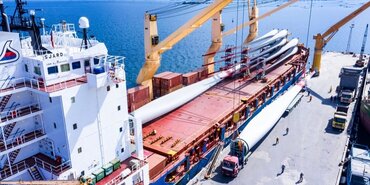TT Talk - Liner 'Cargo Incident Notification System' is an emerging power

The Cargo Incident Notification System (CINS) was formed by leading liner shipping companies to allow seaborne carriers to share information in order to establish areas of concern and trends, and improve safety in the transport chain. An impressive first year of operation demonstrates the power of this database - and confirms worries in relation to dangerous goods.
As a response to concerns arising from the volume of incidents and problems that regularly disrupt operations and endanger lives, property or the environment, five of the top 20 liner operators created CINS in late 2010 in order to capture key data. The founding five have now been joined by a further five and, together, have been populating the database - hosted by the COA (Container Owners' Association) - since launch in September 2011. Participants in CINS now account for 52% of container slot capacity (source
).
CINS facilitates the capture by liner operators of structured key causal information relating to cargo and container incidents. The information capture explicitly excludes any shipper data in order to preclude any anti-trust concerns. The information gathered provides an early warning of worrying trends, whether relating to cargoes that display dangerous characteristics, but have not yet been recognised as such in the IMDG Code, or continuing or emerging unsafe practices in the unit load industry. At the heart of this initiative is a quest for quality - both in terms of pure service delivery, ensuring the cargo arrives in sound condition on time, and also improving the way in which all parties in the supply chain carry out their obligations and communicate.
The incident data captured since launch is now lending weight to - and to some extent challenging assumptions from - the anecdotal evidence from previous years. The records include the nature of the cargo concerned and its packaging, together with details of the routing, and then information on the type of incident and the root cause. The TT Club, as an advisory member of the CINS committee, recently undertook analysis of the data on behalf of CINS.
Given that the records are initiated by incidents - the presenting problem - it may be unremarkable that more than two thirds of the substances involved are dangerous goods. However, the significance of this becomes clear when looking at the type of incident that is incurred (see Chart 1), where half relate to leakage and a further fifth are mis-declared. Thankfully, only 8% of the incidents by number involve fire or explosion, but clearly the consequences then are far more serious.
- Author
- Staff Author
- Date
- 19/12/2012





